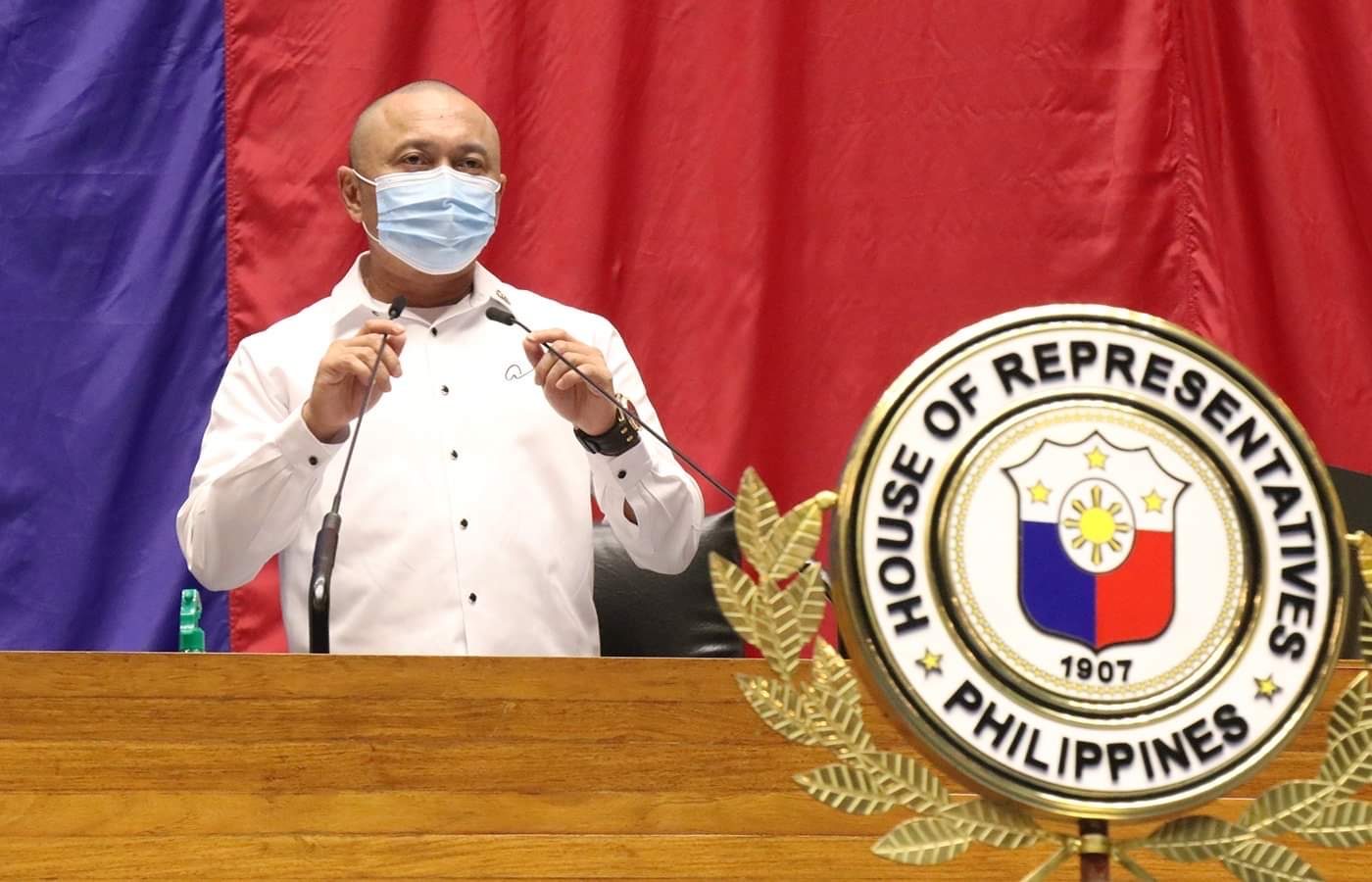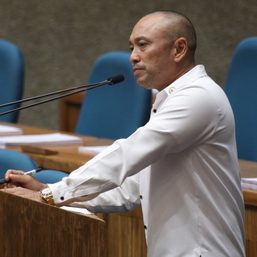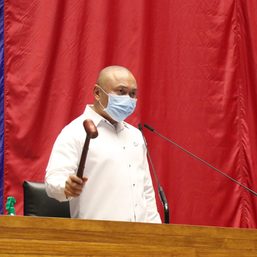SUMMARY
This is AI generated summarization, which may have errors. For context, always refer to the full article.

The Southeast Asian country Timor Leste has no extradition treaty with the Philippines, so it makes sense for a Philippine fugitive like former lawmaker Arnolfo “Arnie” Teves Jr. to go into hiding there, as authorities here cannot easily request the country to extradite him.
But Teves, who is evading Philippine court warrants for murder charges over the killing of former Negros Oriental governor Roel Degamo, was finally arrested after months of hiding in Dili, Timor-Leste on Thursday, March 21.
Teves was living the good life, playing golf at the Top Golf Driving Range and Bar, when he was arrested by the Timor Leste police. How did it happen?
Interpol
The former lawmaker was arrested through collaboration between the International Police’s (Interpol) National Central Bureau (NCB) in Dili and the Timorese police.
Teves was on the Interpol’s red notice alert.
An Interpol red notice alert does not serve as an international arrest warrant. However, Interpol’s international mechanism requires members to cooperate with its processes.
It is up to each member-state to assess the value of a red notice and how its officers will enforce arrests, the Interpol said.
Because both the Philippines and Timor-Leste are members of Interpol, Timor Leste was expected to act as a member would: arrest and provisionally detain Teves, who was on the red notice alert, while waiting for extradition, surrender, or any other legal action.
But without an extradition treaty, and a possible refusal by Teves to surrender, what happens next?
Next step: deportation?
Department of Justice spokesperson Assistant Secretary Mico Clavano said an extradition can still be possible through the United Nations Convention on Transnational Organized Crime or UNTOC, a treaty signed by both the Philippines and Timor Leste, and which provides for new frameworks for extradition.
“Pero mas mahaba nga siyang process. Mas mahaba siya (But it’s a longer process, it’s longer),” Clavano explained.
“Kung sa extradition po kasi, magiging international obligation ‘yon, which means that it will take some time dahil may mga document,” he added. (In extradition, it will become an international obligation, which means that it will take some time because there would be documents needed.)
“Kung deportation naman, mas mabalis na proseso ‘yun dahil wala naman po siyang passport. Wala na siyang valid passport. Although the timing will have to be dependent on the Timor-Leste government (Deportation would be a much faster process because Teves no longer has a passport. He doesn’t have a valid passport anymore),” Clavano said.
The Department of Foreign Affairs (DFA) has confirmed that Teves’ passport is now canceled, and without a passport, it would be hard for him as a foreigner in Timor Leste to remain there. Teves tried to apply for political asylum in Timor Leste, but he was denied.
Clavano said that a meeting has already been held by the Timorese government and Philippine delegation to discuss the “most feasible, fastest, and safest way” to bring Teves back to the Philippines.
Ferdinand Topacio, Teves’ lawyer, said his client’s detention was extended for a maximum of 15 days “or for the possible duration of the trial.”
“Visitors allowed are his lawyers and close Filipino friend pre-screened by the [Timor-Leste] authorities, and others, upon the consent of Mr. Teves,” Topacio said on Saturday, March 23.
A test case
The Teves controversy is an interesting case for how international mechanisms can work to arrest a person if the case transcends jurisdiction.
What Teves’ case shows is that Timor Leste cooperated with the Interpol in enforcing his arrest. The biggest flaw in international law is the lack of cooperation of countries.
The United States is a member of the Interpol, so in the event that Apollo Quiboloy, who is wanted by the Federal Bureau of Investigation, is put on the red alert notice, it bears watching whether the Philippines or any other member country will arrest him to aid the US. Washington and Manila also have an extradition treaty.
Quiboloy’s close friend, and now new owner of his properties, former president Rodrigo Duterte, may be the subject of an International Criminal Court (ICC) probe into the killings of the so-called Davao Death Squad during Duterte’s time as Davao City mayor, and war-on-drugs killings during his term as president.
If the ICC issues an arrest warrant against Duterte – which he is already speculating it would – the big question is how the Philippines can enforce such a warrant when the country is no longer a member of the ICC.
But the ICC has an agreement with the Interpol. The Court can also request the subjects of its warrant to be put on the red notice alert. If that happens for Duterte, the Interpol can now request its 196 member-countries to cooperate, and possibly arrest and detain the subject on their behalf.
China, although not a member of the ICC, is an Interpol member. The goal of these different international mechanisms is to make the world smaller for fugitives and criminals. – Rappler.com
Add a comment
How does this make you feel?







![[Vantage Point] The PDEA leaks](https://www.rappler.com/tachyon/2024/05/vantage-point-pdea-probe.jpg?resize=257%2C257&crop=255px%2C0px%2C720px%2C720px)
![[Edgewise] How Duterte can elude ICC arrest](https://www.rappler.com/tachyon/2024/05/thought-leaders-How-Duterte-elude-icc-arrest.jpg?resize=257%2C257&crop=272px%2C0px%2C720px%2C720px)




![[OPINION] Rodrigo Duterte and his ‘unconditional love’ for China](https://www.rappler.com/tachyon/2024/04/rodrigo-duterte-xi-jinping-august-2019.jpeg?resize=257%2C257&crop=91px%2C0px%2C900px%2C900px)



![[The Slingshot] Lito Patay’s 4 hours and 38 minutes of infamy](https://www.rappler.com/tachyon/2024/07/Lito-Patay-4-hours-infamy-July-19-2024.jpg?resize=257%2C257&crop=233px%2C0px%2C720px%2C720px)


There are no comments yet. Add your comment to start the conversation.